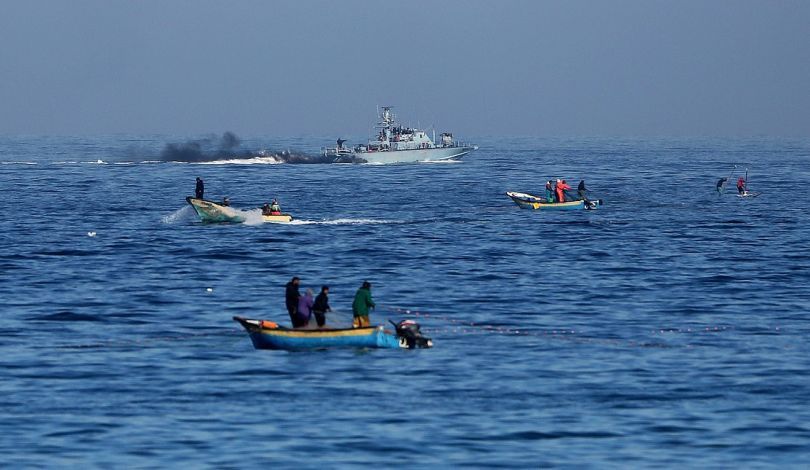
Introduction
This report addresses the serious violations committed by Israeli naval forces against Palestinian fishermen in the Gaza Strip. It also sheds light on fishermen’s daily suffering while at work and the daily attacks against them that aim at restricting their movement, denying their right to work and to secure their livelihoods.
The report also documents the Israeli forces’ attacks against fishermen in the Gaza Strip from 01 November 2017 to 30 April 2019. The continued acts of chasing and shooting at Palestinian fishermen by Israeli naval forces stationed off the Gaza waters resulted in many killings and injuries among fishermen, as well as damage to their equipment. Moreover, dozens of fishermen were arrested and investigated after their fishing boats and nets were confiscated, despite posing no danger to the Israeli naval forces.
The Israeli authorities continued to impose naval blockade on the Gaza Strip shores and deny fishermen access to areas where fish breed. During the reporting period and until 31 March 2019, the de-facto approved fishing area was between three- nine nautical miles. The restricted fishing area denied fishermen from fishing freely, gravely deteriorating the economic and social conditions of at least 4,000 fishermen registered at the Fishermen’s Syndicate and 1,000 workers in other associated professions.
At the beginning of April 2019, the Israeli authorities declared the expansion of the fishing area from six to 15 nautical miles off the Gaza Strip shore for the first time since 2000. The data documented following the expansion of the fishing zone indicate that no significant impact happened in fishermen’s work, particularly for production. This is due to several reasons: a. the systematic Israeli policy targeting fishermen within the allowed fishing area; b. the restrictions on importing necessary fishing equipment; and limiting the expansion of fishing area to the area beyond Gaza Valley (Centre Gaza Strip to the south), which are non-breeding fishing areas due to the sandy nature and fragile environmental conditions.
Additionally, Israeli authorities continued to impose restrictions on importing necessary equipment for fishermen to sail farther than 15 nautical miles, such as transmission gears, fiberglass, steel cables and spare parts. The Israeli authorities classifies these materials as “dual-use materials” that can be used for military objectives.
Denial of entry of spare parts necessary for manufacturing and repairing boats led to paralyzing the boat industry. Only a few number of workshops continue to repair boats while the boat-manufacturing industry has completely stopped. This is also amplified by the financial vulnerability of fishermen in light of depriving them from fishing freely as well as destroying and confiscating their fishing boats.